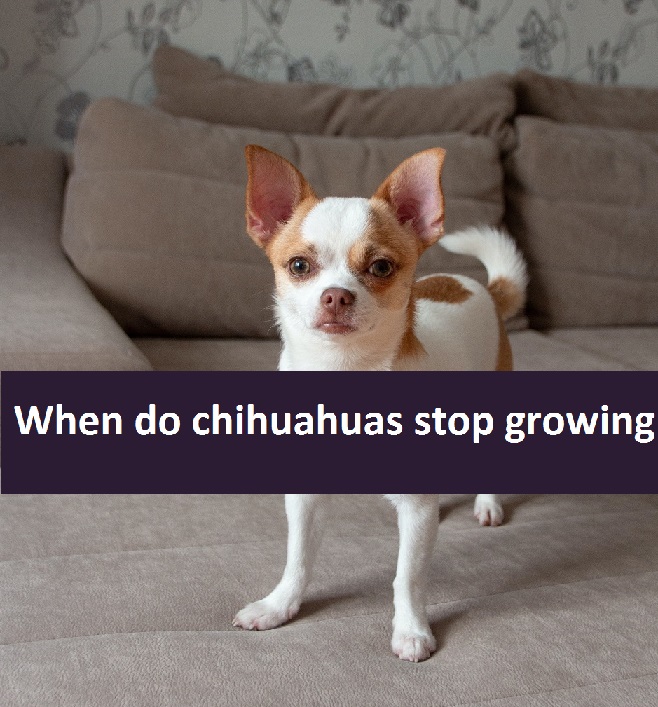Unveiling the Growth Journey: When Do Chihuahuas Stop Growing?
Chihuahuas, with their small size and big personalities, capture the hearts of many dog enthusiasts. If you’re considering adding a Chihuahua to your family, understanding their growth journey is essential to providing the best care. The questions “When do Chihuahuas stop growing?” and “When do Chihuahua stop growing?” often arise. In this comprehensive guide, we’ll explore the growth stages of Chihuahuas, factors that influence their growth, and other frequently asked questions about this delightful breed.
Navigating Chihuahua Growth: From Puppies to Adulthood
Chihuahuas, like all dogs, go through distinct growth stages from puppyhood to adulthood. Understanding these stages can give you insights into when they reach their full size.
Puppyhood: The Rapid Growth Phase
During the first few months of life, Chihuahua puppies experience rapid growth. Their bones and muscles develop, and they gain weight and height quickly. This phase usually lasts from birth until around six to eight months of age.
Adolescence: Slowing Down
As Chihuahuas approach their first year, their growth rate starts to slow down. While they continue to grow, the changes in their size become less dramatic. This phase typically extends from around eight months to one year of age.
Adulthood: Reaching Their Full Size
Chihuahuas are considered fully grown by the time they reach around one year of age. However, some may continue to fill out and develop muscle tone up until they are around 18 months old. The size they achieve by one year is generally close to their adult size.
Factors That Influence Chihuahua Growth
Several factors can influence when Chihuahuas stop growing and the size they reach:
- Genetics: Genetics play a significant role in determining a Chihuahua’s adult size. The size of their parents and ancestors can give you an idea of the range your Chihuahua might fall into.
- Nutrition: Providing a balanced and appropriate diet during puppyhood is essential for healthy growth. Proper nutrition supports bone and muscle development.
- Healthcare: Regular veterinary care ensures that any potential growth issues are addressed promptly. A healthy Chihuahua is more likely to reach their full size without complications.
- Exercise: Appropriate exercise supports the development of strong muscles and bones. Avoid excessive exercise during the rapid growth phase to prevent strain.
Frequently Asked Questions About Chihuahuas
In addition to their growth, there are other common questions that potential Chihuahua owners seek answers to. Here are responses to some frequently asked questions:
1. Are Chihuahuas Good with Kids?
Chihuahuas can be good companions for children if they are properly socialized, trained, and supervised. Individual temperament and early experiences play a role in their compatibility with kids.
2. Do Chihuahuas Bark a Lot?
Chihuahuas are known for their alert nature, and some individuals may bark more frequently than others. Proper training and socialization can help manage their barking behavior.
3. What Factors Determine Chihuahua Growth?
Chihuahua growth is influenced by genetics, nutrition, healthcare, and exercise.
4. What Size Can I Expect My Chihuahua to Reach?
Chihuahuas typically reach a size of around 5 to 8 inches in height and 2 to 6 pounds in weight.


